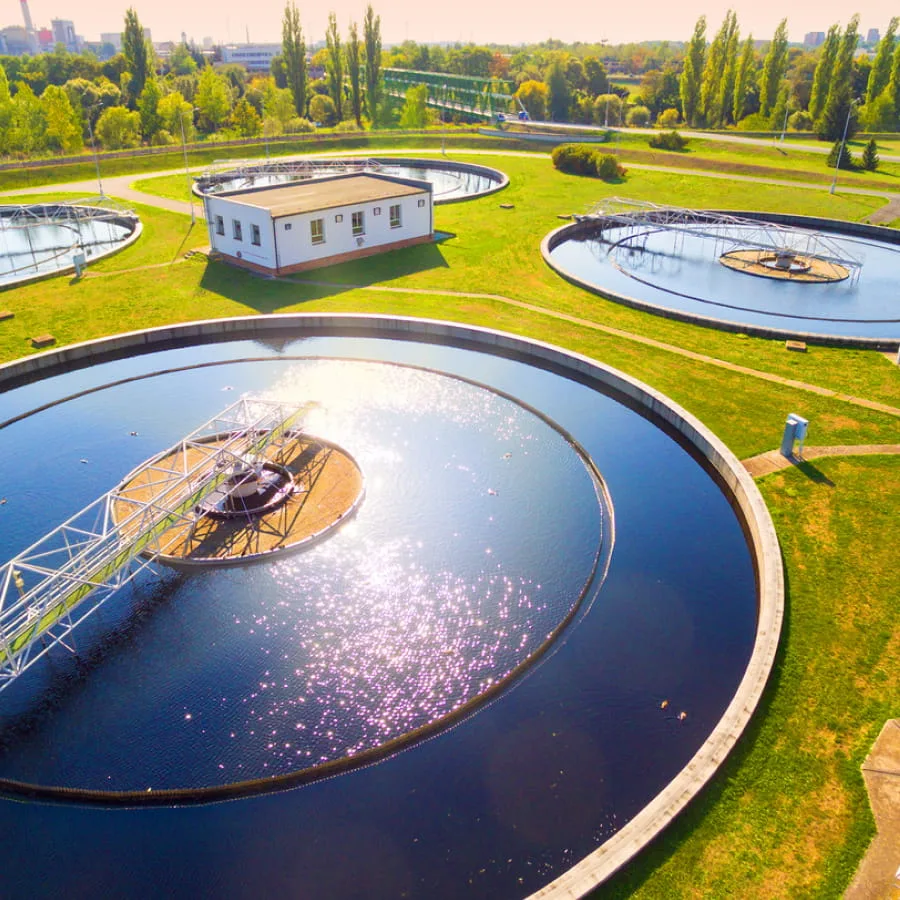Water treatment is a crucial aspect of maintaining a healthy environment and ensuring a clean water supply for the community. Behind this complex process lies a series of technologies and chemicals (water treatment chemicals) that play a vital role in transforming wastewater into safe and clean drinking water.
In this article, we will explore the important role of chemicals in water treatment.
What is Water Treatment Chemical?
Water treatment chemicals are substances added to water to modify its physical, chemical, and biological properties. The goal is to achieve the desired water quality, whether for drinking, industrial, or other purposes.
These chemicals help clean water from contaminants such as dirt, bacteria, viruses, and heavy metals, and improve water quality to make it safe and suitable for use.
Types of Water Treatment Chemicals?
There are various types of water treatment chemicals, each with its own functions and uses. Here are some commonly used chemicals:
1. Coagulants and Flocculants
- Coagulants: Function to clump together small particles suspended in water so they can be easily separated in the next step. Examples of commonly used coagulants are alum (aluminum sulfate), PAC (polyaluminum chloride), and ACH (aluminum chlorohydrate).
- Flocculants: Function to enlarge the flocs (clumps) formed during the coagulation process so they can be easily settled or filtered. Examples of commonly used flocculants are polymers.
Read Also: Understanding Coagulation in Water Treatment Processes
2. Disinfectant
Disinfectants function to kill harmful microorganisms, such as bacteria, viruses, and parasites. Here are some examples of commonly used disinfectants:
- Chlorine: The most common disinfectant used to kill bacteria and microorganisms.
- Chlorine Dioxide: Having stronger oxidizing power than chlorine, this substance can eliminate all types of pathogenic bacteria and prevent the growth of moss and algae.
- Sodium/Calcium Hypochlorite: A chlorine-containing compound available in solution or powder form. Effectively kills bacteria, viruses, and fungi.
- SDIC 60%: A sodium dichloroisocyanurate solution containing 60% available chlorine. SDIC 60% is used for disinfecting drinking water, swimming pool water, and wastewater.
- TCCA 90%: Trichloro-s-triazinetrione containing 90% chlorine. TCCA 90% works by releasing chlorine, which kills bacteria and microorganisms.
- H2O2: A disinfectant that works by oxidizing organic matter and killing microorganisms. H2O2 is safe to use and does not produce harmful residues.
3. Purifiers
- Activated carbon: Absorbs unwanted odors, tastes, and colors from water.
- Ion exchange resin: Replaces unwanted ions in water with safer ions.
- Silica sand: A filter medium used to remove suspended particles in water.
Read Also: 5 Uses of Silica Sand that You May Not Know
4. pH Controller
These chemicals help balance the water’s pH to meet health standards. Commonly used pH regulators include lime and caustic soda.
5. Antiscalant
Antiscalants are chemicals used to prevent scale formation on metal surfaces. Scale can form due to the precipitation of salts and minerals in water. Antiscalants work by binding to these salts and minerals and preventing them from adhering to the metal surface.
6. Corrosion Inhibitors
Corrosion inhibitors are chemicals used to prevent corrosion in metals. Corrosion can occur due to metal contact with water, air, and other chemicals. Corrosion inhibitors work by forming a protective layer on the metal surface or by binding to ions that can cause corrosion.
Benefits of Using Water Treatment Chemicals
The use of water treatment chemicals has many benefits in various sectors, including industry, households, and healthcare. Here are some of the benefits:
1. Ensuring Safe and Healthy Water Quality
Water treatment chemicals help remove harmful contaminants from water, such as bacteria, viruses, parasites, heavy metals, and organic chemicals. This ensures that the water produced is safe for consumption and for various purposes, such as bathing, washing, and cooking.
2. Increases the Efficiency and Durability of Water Treatment Systems
Using the right chemicals can help keep water treatment systems operating efficiently and optimally. These chemicals can prevent the formation of scale, rust, and slime on pipes and water treatment equipment, thereby extending their lifespan.
3. Reduces Environmental Pollution
Wastewater treatment with water treatment chemicals helps reduce water and soil pollution. These chemicals can help degrade pollutants and remove harmful microorganisms from wastewater before it is discharged into the environment.
4. Saves Costs
Using water treatment chemicals can help save costs in the long run. This is because these chemicals help prevent damage to water treatment equipment, reduce water usage, and increase energy efficiency.
The Importance of Using Proper Water Treatment Chemicals
While water treatment chemicals have many benefits, it is important to use them appropriately. Excessive use of chemicals can be harmful to health and the environment. Therefore, you need to consult an expert to determine the correct type and dosage of chemicals to use.
Lautan Air Indonesia offers various types of water treatment chemicals. Before deciding which one is right for you, you can consult with our team first.



